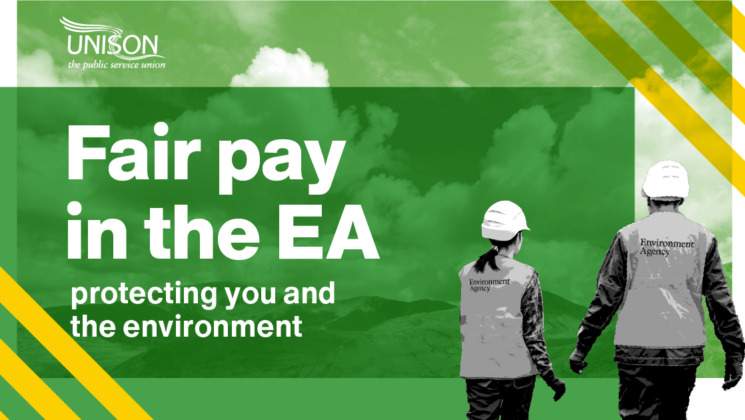Thousands of Environment Agency workers in England will strike for the first time later this month in a significant escalation of their dispute over pay, says UNISON today (Thursday).
Workers who maintain important safety structures such as the Thames Barrier, coastal sea defences and those protecting communities from floods, water pollution, spills, waste fires and fly-tipping will walk out on Wednesday 18 January from 8am to 5pm. The strike comes at a time of year when extreme weather is more likely to hit the country, warns UNISON.
Last month, thousands of workers started working to rule for an indefinite period. This means they are working only their contracted hours, taking all their scheduled breaks and full rest time between shifts. Employees also refused to volunteer to be ‘on call’ and deal with live incidents last month and over sections of the festive period.
This will be the first time Agency workers have gone on strike in the organisation’s history over pay, but the employer’s failure to give a decent rise has left them with no alternative, says UNISON.
The Agency is also struggling with high vacancy rates meaning those in post are having to deliver even more to ensure communities and the environment are safe.
Last November, workers were given an inadequate pay rise of just 2% – less than a fifth of the lowest current measure of inflation – plus a £345 payment, after years of wages falling further behind rising costs, says the union.
Where there is a threat to life or property from incidents such as a major flood, officers will step in as emergency ‘life and limb cover’ has been agreed, says UNISON.
UNISON head of environment Donna Rowe-Merriman said: “Dedicated staff have been left with no other option but to strike over pay for the first time in the Agency’s history.
“The decision to strike wasn’t taken lightly as workers know their role is crucial in keeping communities and the environment safe.
“But the cost-of-living crisis has reached a point where the lowest paid are truly struggling to make ends meet. Staff often have no choice but to look for other work outside the Agency. This appalling situation cannot go on.
“Communities rely on these critical workers, particularly during bouts of extreme weather and rising problems of river pollution. They should be paid accordingly.
“UNISON is urging ministers and the Agency to negotiate and ensure workers are given an improved pay offer. Otherwise, more staff will join the exodus.”
Notes to editors:
– UNISON is the UK’s largest union with more than 1.3 million members providing public services in education, local government, the NHS, police service and energy. They are employed in the public, voluntary and private sectors.






